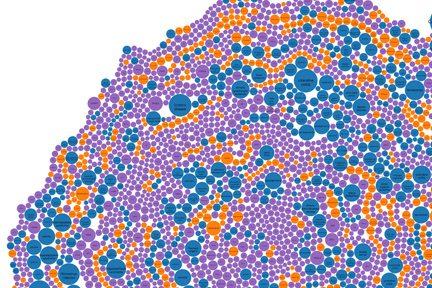Nutrition and Genomics Team
Mission
The Nutrition and Genomics Team is a pioneer in the study of gene-diet interactions in the area of cardiovascular diseases, utilizing both genetic epidemiology approaches as well as controlled dietary intervention studies.
Objectives
- Identify metabolomic-based biomarkers of dietary and exercise behavior in normal-weight and obese elderly individuals and the genetic variants associating with the baseline levels of these metabolites.
- Determine the demographic, behavioral, metabolomic and genetic drivers of the excess obesity in elderly population(s) suffering health disparity.
- Determine the relationships between aging-related changes in gene expression, endogenous and exogenous microRNAs, metabolic factors and chronotype in response to metabolic challenges such as unhealthy dietary habits, high-fat loads and physical inactivity.
- Identify genomic, and epigenomic and metabolic markers that predict cardiovascular status and metabolic health during aging and define specific dietary, physical activity and other lifestyle factors that are most suitable to an individual’s genetic and epigenetic profile.
- Use a multi-omics approach to identify multi-level genome/metagenome/diet interactions that modulate inflammation and aging pathways in normal-weight and obese individuals.
Team Members
José M. Ordovás, PhD
Lead Scientist and Senior Scientist
Research focus: molecular biology, nutrition, and genetics; lipoproteins and cardiovascular disease risk
Chao-Qiang Lai, PhD
ARS Research Molecular Biologist/Geneticist
Research focus: Nutrition, genetics, and healthy aging; epigenomics, gene by diet interaction, risk prediction and prevention of cardiovascular and metabolic disease
Laurence D. Parnell, PhD
ARS Computational Biologist
Research focus: To understand how the human genome and its numerous genetic polymorphisms interpret the lifestyle of the individual – diet and physical activity among others – in ways that affect risk of cardiovascular disease, type 2 diabetes, hypertension and obesity. This is done with computational tools and databases, with a goal of describing factors pertinent to personalized nutrition.
Margie Dunn, Staff Assistant
Richard Minogue, Research Administrator I
For more about ARS Scientists or USDA, Agricultural Research Service Human Nutrition Research Center on Aging: www.ars.usda.gov/naa/hnrca
